The transition to a sustainable food system
Responding to climate change, does Vietnam’s agricultural sector appear to be trailing behind other agriculturally developed nations when it comes to fostering corporate transformation to a sustainable food system?
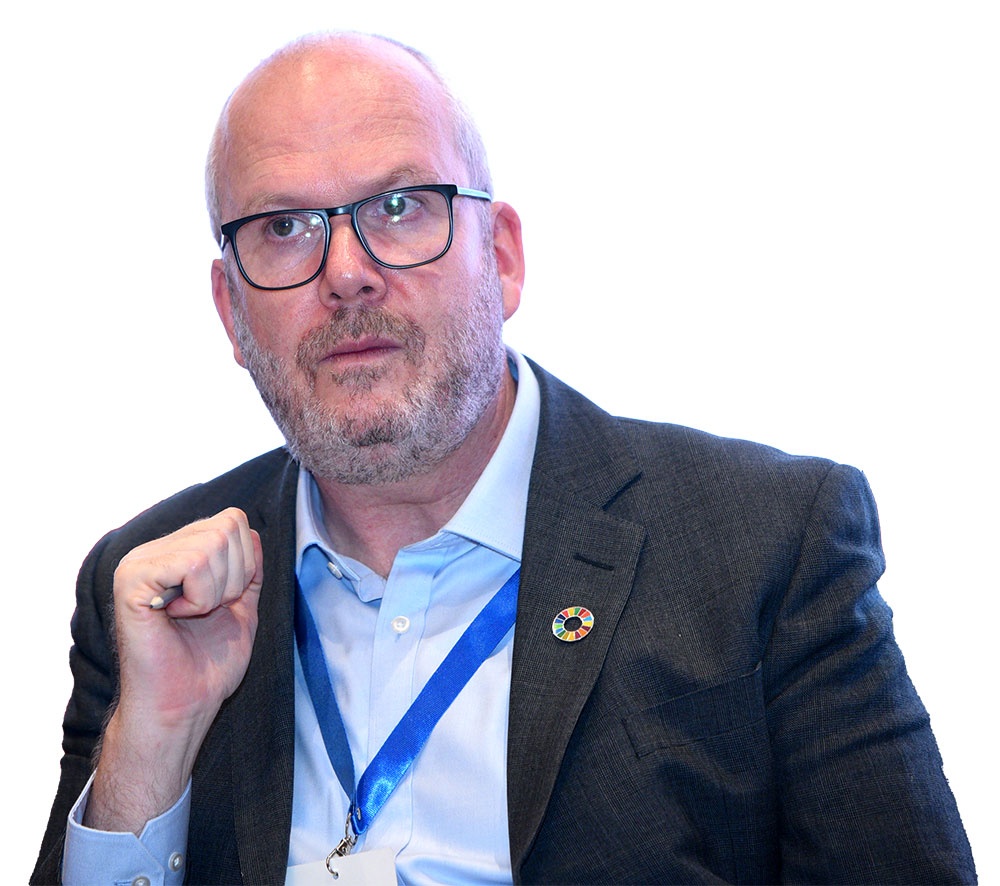 |
| Chris Hogg, Vice president and head of Sustainability and Communications, Nestlé Zone AOA |
I don’t think this is a race or a competition. The reality is that we’re facing a climate emergency, so every single country can always do more and move faster.
The challenge for everybody is that this is expensive and complicated. The event on clustering industry towards sustainable food systems transformation in Vietnam is trying to encourage people to find ways to work together. Working together, as I said on the panel, is very difficult.
We’re trying to transition, so the important thing is that the Vietnamese government is very much engaged in attempting to make Vietnam a hub for innovation in food system transformation.
And I know that we as a private company appreciate very much the support and partnership that we get from the government because if we’re going to fix these very difficult problems, we need to work together.
What should Vietnam do to speed up the agricultural sector in transitioning to a sustainable food system and becoming a regional food innovation hub?
All this is really about making sure that farming is a good profession to join. If you inherit your family farm, it makes sense for you and your family to stay on the land. So the more that we can help with improving the productivity of farms in a regenerative way, meaning a way that is good for the soil, good for the planet, then you’re going to have a double benefit. You will benefit that farmer because you will have a more productive enterprise and a more productive farm.
But most importantly, these are efforts that will be good for the planet. We’re facing a climate emergency, and it’s significant. That we play our role as the world’s biggest food company in helping agriculture change, transform itself, and become stronger so that we can make a difference and deal with the climate emergency.
What are Nestlé’s expectations from the key message of Vietnam in the transformation to a sustainable food system?
Nestlé has committed to being net-zero by 2050, meaning that we want to reduce our carbon footprint. One way to do this is to encourage farmers to take the best of the old way of doing things, conventional agriculture, but combine it with regenerative agriculture techniques. We really encourage farmers to work with us to develop regenerative agriculture techniques that will be good for them, good for us, and good for the planet.
Because the structure and dynamics of agricultural production have been thoroughly exploited, in what direction will Nestlé’s solutions for Vietnam’s transition to a sustainable food system move?
One thing that’s changing is science. In the old days, there’s one message for farmers, which was that if you use this amount of fertiliser and this amount of pesticide, this is the result you’ll get: your farm will be more productive.
The truth is that today we know much more, and because we have this new science, we can take a much more tailored approach and understand soil health much better.
The key thing is that we have better science than we’ve ever had before to help the farmer. If we can harness that science to help that farmer to make more money, to have a better living for them and their family, and actually enhance the impact on the environment, then that’s a very exciting journey to go on.
The economic efficacy of Nestlé’s products is determined by calculating their revenue and profit margin per unit of land. How has this affected Nestlé’s transition to a sustainable agricultural system in Vietnam?
Of course, we’re a private company and we have a responsibility to our shareholders. But ever since we started 150 years ago, we’ve been all about creating shared value. This means creating value for your shareholders while at the same time creating value for the communities where you operate.
In Vietnam, the work that we carry out in the Central Highlands with coffee farmers is about helping them turn from farmers into agri-preneurs because we need to have a reliable supply of good-quality coffee. Cost always comes into it, but we prefer to see it as an investment.
It’s an investment to transform our business into a low-carbon business to strengthen our business, and over the long term, this will be good for Nestlé shareholders as well as the communities that we buy our coffee from.
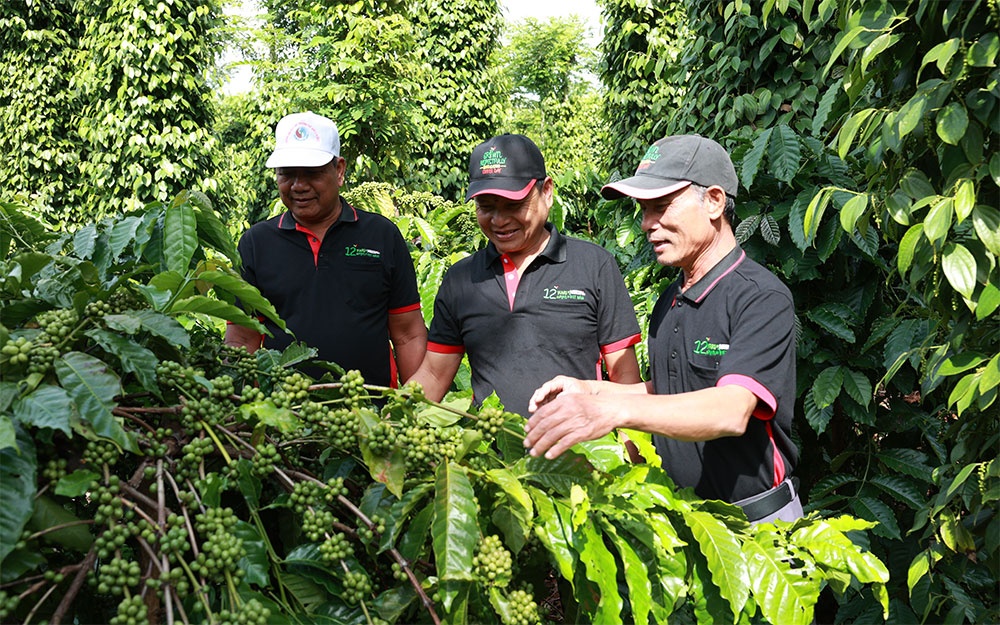 |
What is Nestlé doing to facilitate Vietnam’s transition to a sustainable agricultural system?
The important point is that if you want to build a sustainable food system, it has to make sense for all of the actors.
Through the Nescafé Plan 2030, we are investing to strengthen farming communities. At the same time, we’re also investing in our other facilities, such as our factories. We’re very proud that this area in the Central Highlands is becoming a lighthouse for the whole company, and it’s an area that we now see as being best practice, so that other coffee-growing parts of the world can learn from what we do there.
And then, of course, the better quality coffee that we can get as a result of this goes to our factories, and now we’re very proud of the fact that our factories export to other parts of the world.
Those two things are interconnected. The more that you have a better-functioning agricultural system, the more that you have farmers who have better yields because the soil health is better, and then you have a more reliable supply of coffee. You need a reliable supply of coffee to make your factories run in the most efficient way.
What challenges and opportunities does Nestlé face when implementing regenerative agriculture in Vietnam?
One of the most enduring challenges with asking farmers to change their ideas, change the practices that they’ve heard from their grandfathers and from their fathers, and to do something different – perhaps to use less fertiliser, instead, to use compost fertilisers made by agricultural residues and coffee husk.
Additionally, we also help farmers to change their habit to pick ripe cherries. Via these changes in farming, we help them save 20 per cent of fertilisers and increase 20 per cent of production. You’re asking them to trust you that really what you are telling them or encouraging them to do will be beneficial to them.
So we try as much as possible to create pilot farms so that we can show them how there is a benefit. We get groups of 50-100 farmers, and they elect a farmer leader, and then we train that leader so that they are helping us to make sure that the messages make sense.
When I’ve been to the Central Highlands, we have an army of agronomists who are really the heroes who are helping to work with these farmers. Often, these agronomists come from farming families themselves. They are really all about making sure that we work with farmers and farmworkers so that all of this makes sense.
Last but not least, we also have very strong cooperation with the Western Highlands Agriculture and Forestry Science Institute for high quality, drought resistant planlet production and distribution to all farmers to rejuvenate their ageing coffee plantation. Since 2011, the Nescafé Plan in Vietnam has distributed more 63 million plantlets for rejuvenating more than 63,000ha of ageing coffee farms.
*Interview held at an event on clustering industry towards sustainable food systems transformation in Vietnam, as part of the fourth global conference of the Sustainable Food Systems Program, organised by the Ministry of Agriculture and Rural Development and the United Nations Industrial Development Organization in April.
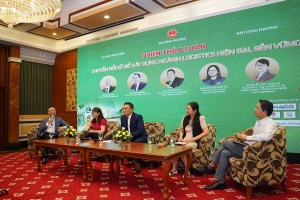 | Nestlé Vietnam focusses on digital transformation throughout its supply chain Nestlé Group is pioneering in the application of digital transformation throughout its logistics activities in the Vietnamese market. |
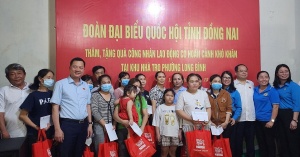 | Nestlé Vietnam supports staff in disadvantaged circumstances In response to Workers' Month 2023, Nestlé Vietnam has granted thousands of gifts to disadvantaged employees in some provinces and cities across the country. |
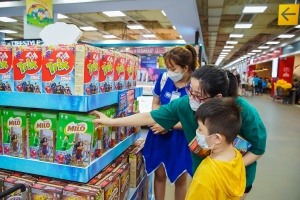 | Nestlé Breakfast Cereal cooperates with Warner Bros to bring joy to children Nestlé Breakfast Cereal has teamed up with Warner Bros to unveil a DC Comics programme that combines images of superhero characters to bring joy to children. |
What the stars mean:
★ Poor ★ ★ Promising ★★★ Good ★★★★ Very good ★★★★★ Exceptional
Related Contents
Latest News
More News
- Masan Consumer names new deputy CEO to drive foods and beverages growth (February 23, 2026 | 20:52)
- Myriad risks ahead, but ones Vietnam can confront (February 20, 2026 | 15:02)
- Vietnam making the leap into AI and semiconductors (February 20, 2026 | 09:37)
- Funding must be activated for semiconductor success (February 20, 2026 | 09:20)
- Resilience as new benchmark for smarter infrastructure (February 19, 2026 | 20:35)
- A golden time to shine within ASEAN (February 19, 2026 | 20:22)
- Vietnam’s pivotal year for advancing sustainability (February 19, 2026 | 08:44)
- Strengthening the core role of industry and trade (February 19, 2026 | 08:35)
- Future orientations for healthcare improvements (February 19, 2026 | 08:29)
- Infrastructure orientations suitable for a new chapter (February 19, 2026 | 08:15)

 Tag:
Tag:


















 Mobile Version
Mobile Version